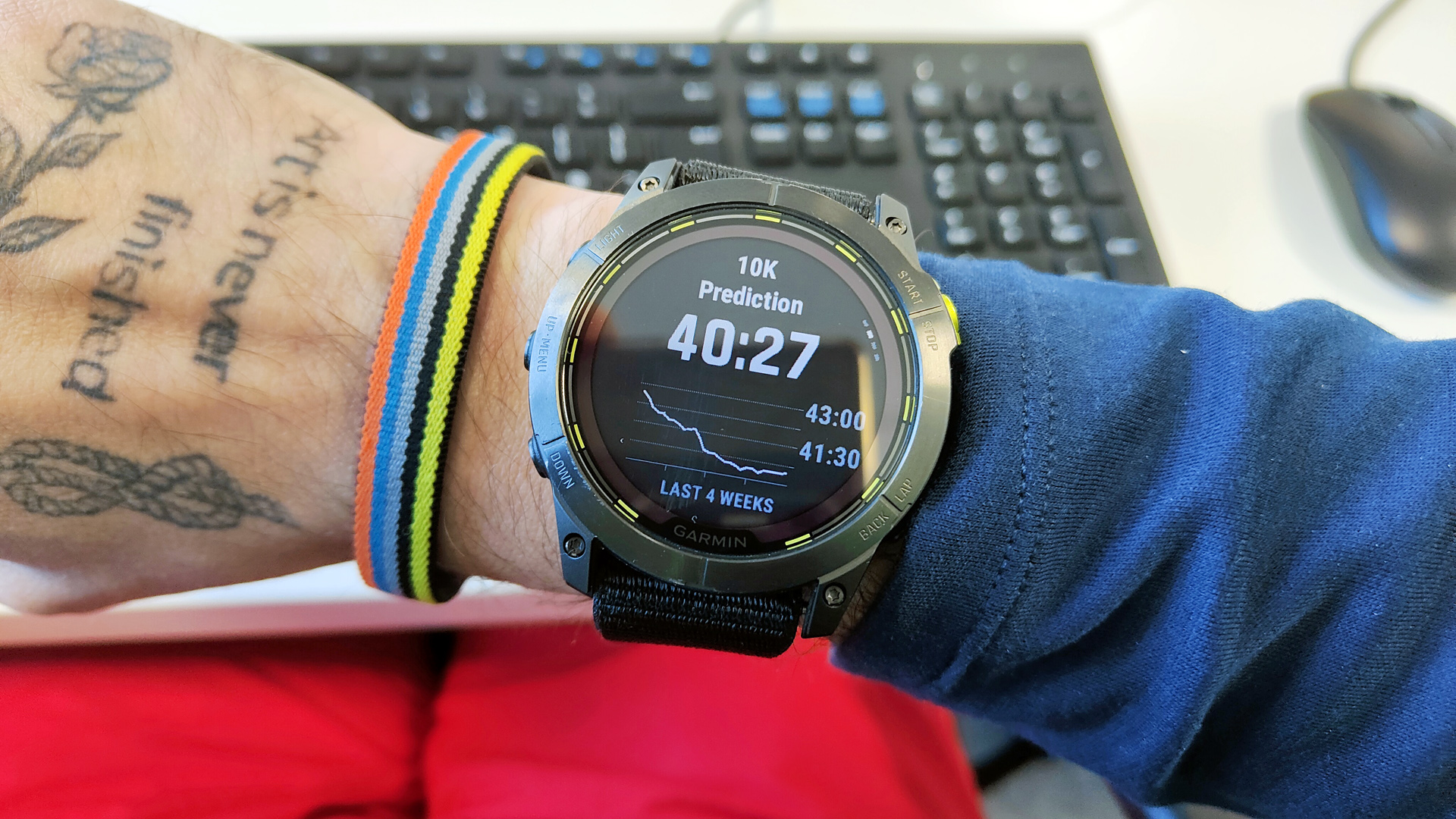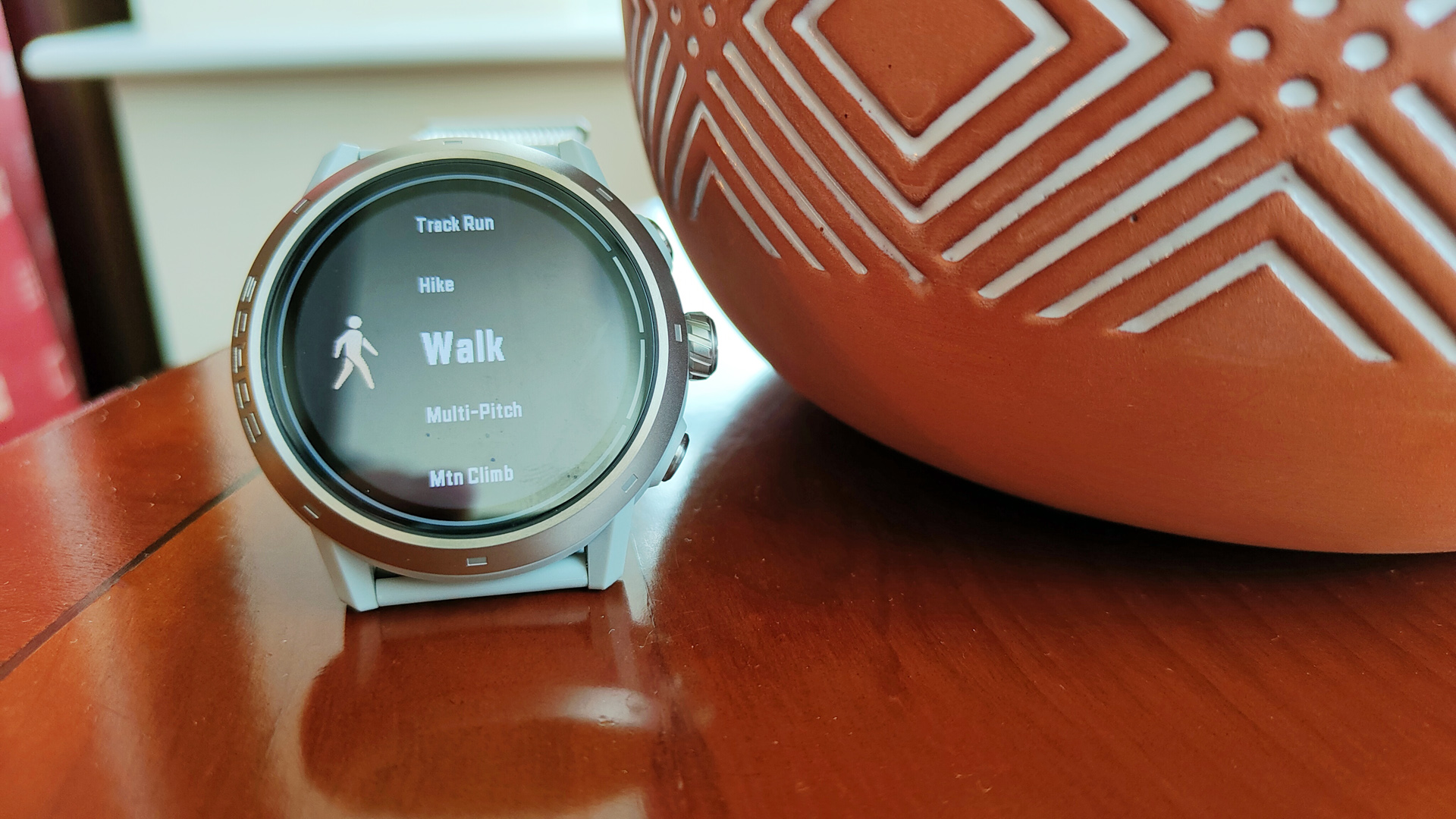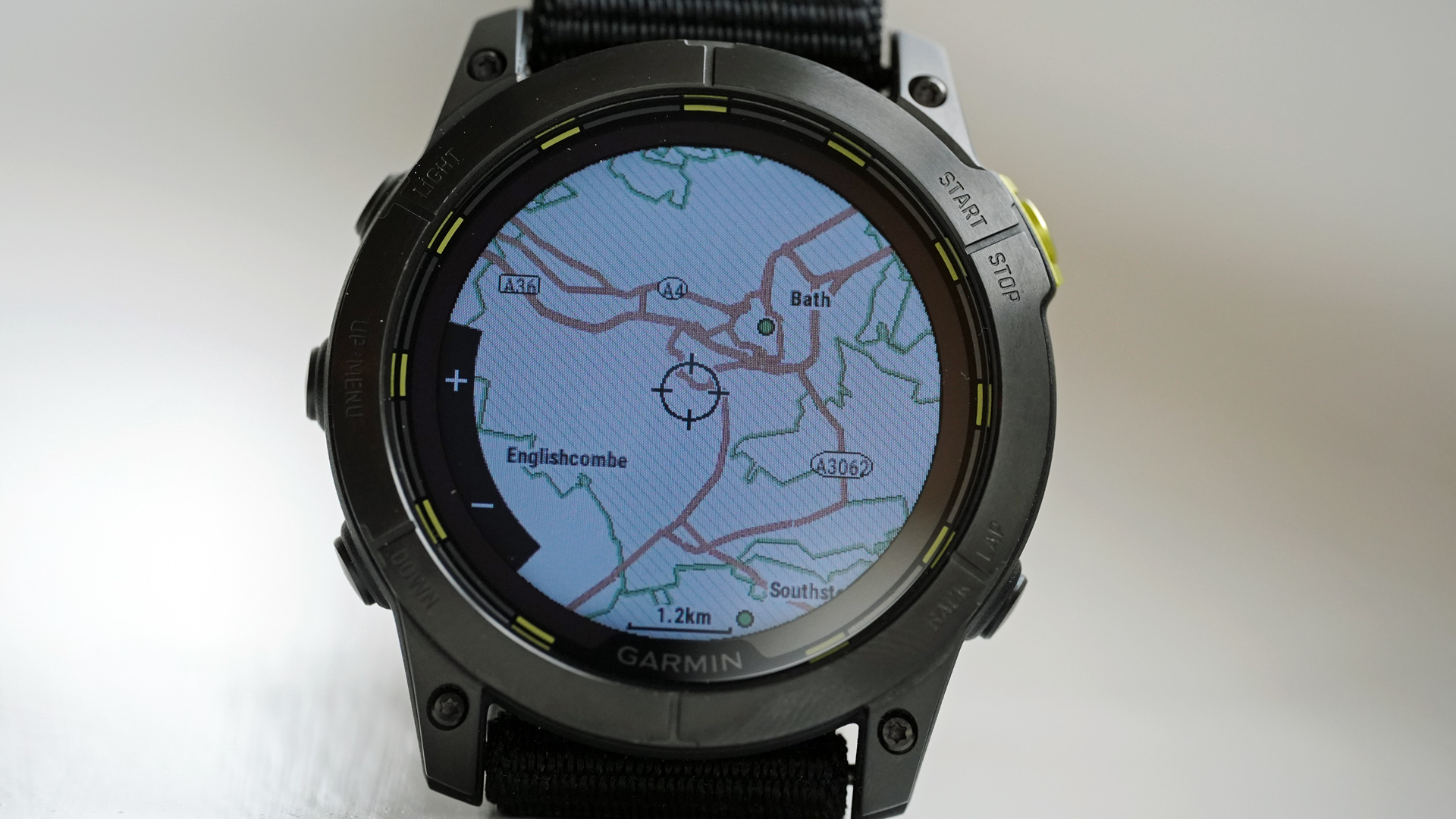How accurate is Garmin's race time prediction? I trained for and ran a 10k race to find out
How accurate is Garmin's algorithm? I put it to the test last weekend at the London Winter 10k


I had a fabulous weekend in London – visited the V&A Museum (that David replica!), had lovely custard-filled pastries shaped like a fish, and ran the London Winter 10K, along with nearly 14,000 other runners. The race was great and proved to be an excellent opportunity to test the race predictions on my Garmin. It turns out these aren't far off...
I've been testing the best Garmin watches for years, and I'm currently running a little experiment by wearing the Garmin Enduro 2 and the Coros Apex 2 Pro simultaneously to see which is more accurate.
Both of the best triathlon watches are amazing. They provide spot-on GPS performance, long battery life, and a number of advanced health and safety features.
One of these features is the Race Predictor, which gives you an estimate of how fast you can potentially run a 5k/10k/half-marathon/marathon distance based on your training, sleep, recovery, VO2 max, etc. Of course, these times are hypothetical; the watch can also sense so much and can't tell you how well recovered you feel, what's going on with your stomach on the day of the race and so on.
Worse still, the watches can only tell you how quickly you can finish the distance; predicted times don't consider wind speed, terrain, elevation or what running shoes you're wearing. As you can tell, Race Time Predictions are rough estimates at best but given a large enough data pool and ideal race conditions, they can help you pace yourself better on the big day.

"The Coros gave me more generous predictions, saying I could run a 10k race in 37:42"
I've been wearing both the Coros and the Garmin 24/7 for a month now so that they can provide me with the best estimations. As I keep telling people, you must wear your running watch all day long to help them better understand your training and body. Wearing them only for running will prevent the watch from gauging how fast you recover from exercise and how well your sleep, which helps recovery and performance.
Despite wearing both watches simultaneously, the Coros gave me more generous predictions, saying I could run a 10k race in 37:42 (3'46" per kilometre pace). I knew this was way too generous. Based on my experience, it's probably based on the Coros thinking I'm running faster than I actually am (wearing the Coros Pod 2 on your foot does skew pace readings, interestingly). On the other hand, Garmin predicted my 10k time as 40:24 (around 4'03" per kilometre pace).
Get all the latest news, reviews, deals and buying guides on gorgeous tech, home and active products from the T3 experts
The day of the London Winter 10K (links to the race's website) came, and I felt ready to go. I reduced my training load before the race to ensure my legs were fully recovered and ready to race, and I tried to sleep as well as possible. My only reservation was the shoes I wore; although the new Hoka Clifton 9s (links to Hoka, although the Clifton 9 is not yet available to buy) are surprisingly springy, they aren't for racing. Nevertheless, Hoka kindly asked me to wear them, and since they invited me to the race, I thought it was best I wore the shoes.

"It's clear as day that my Garmin's estimate was not only closer to the actual time but very close in general."
The race went well. I high-fived huskies and saw dancing penguins – what's not to like!? There was some slight elevation here and there, but thanks to the looping course, whenever I lost some time by running uphill, I gained it back, going the other way. As always, both my watches thought I ran more than 10 kilometres, although that's to be expected. I set them to maximum GPS accuracy and wore the Garmin HRM-Pro Plus heart rate monitor to feed data to both watches.
My official time was 40:34 (top 5% for my age group, woohoo!), which isn't terrible considering I didn't wear racing shoes. I hoped it was closer to 40 minutes (maybe even under a little bit), but there is always next time. Looking at the finish time and the predictions, it's clear as day that my Garmin's estimate was not only closer to the actual time but very close in general, which, I'm not going to lie, surprised me a bit.
Of all the watch ecosystems, I think Garmin is the strictest with its estimates, whether VO2 max or race time predictions. It seems to be on point, though, and in the future, I'll pay more attention to what it's got to say. I'm getting ready for the London Marathon 2023 in April and have a 100-mile running challenge coming up in the next few weeks so that I can check predictions over different distances. For now, it's time to recover and carry on with my training, following my watches' recommendations.

Matt Kollat is a journalist and content creator for T3.com and T3 Magazine, where he works as Active Editor. His areas of expertise include wearables, drones, action cameras, fitness equipment, nutrition and outdoor gear. He joined T3 in 2019.
His work has also appeared on TechRadar and Fit&Well, and he has collaborated with creators such as Garage Gym Reviews. Matt has served as a judge for multiple industry awards, including the ESSNAwards. When he isn’t running, cycling or testing new kit, he’s usually roaming the countryside with a camera or experimenting with new audio and video gear.